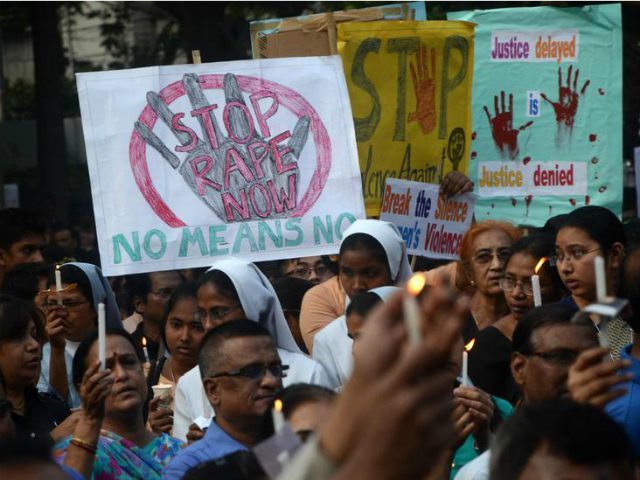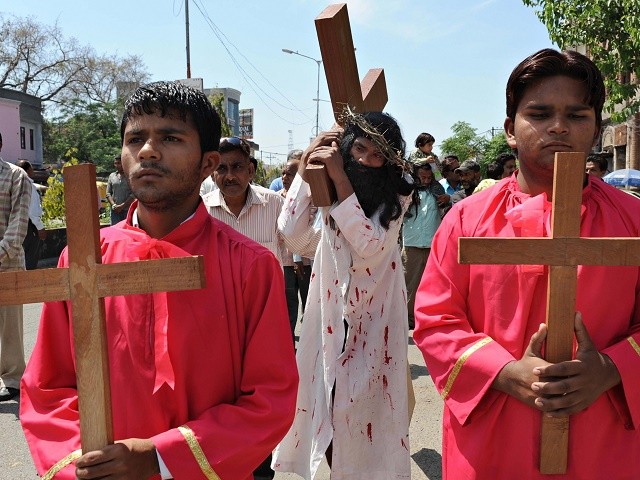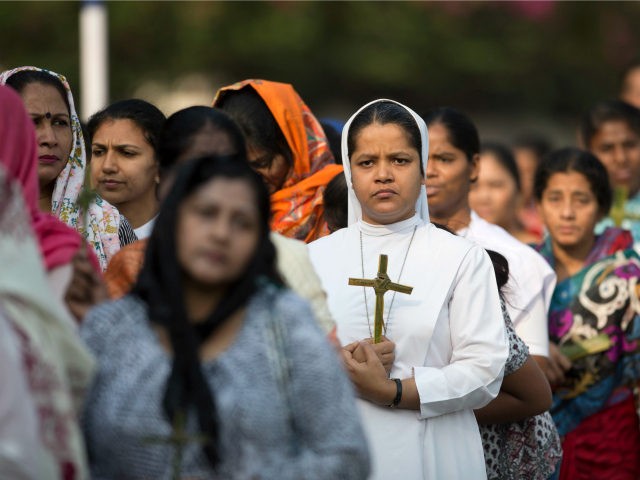A delegation of Indian Christian leaders met with federal ministers this week to request the repeal of “anti-conversion” laws, which they say unfairly target Christians for persecution.
The delegation, comprising 50 Christian leaders representing different denominations, met with authorities on September 28 and presented them with a memorandum detailing various issues that affect Christian minorities in the country and the underlying issue of religious freedom.
Among those present in the delegation were Delhi Archbishop Anil Joseph Thomas Couto, Faridabad Archbishop Kuriakose Bharanikulangara, the Syro-Malabar Church of the Eastern rite, and Archbishop Subodh C. Mondal of the Methodist Church in India. The leaders met with Mukhtar Abbas Naqvi, India’s Federal Minister for Minority Affairs, and John Barla, Undersecretary, according to a report Thursday by Fides News Agency, the official information service of the Pontifical Mission Societies.
The anti-conversion laws, in force in various Indian states, prohibit religious conversion by force or deception, and constitute a crime punishable with various sanctions. Some of the states that have enacted laws banning religious conversions are Odisha, Uttar Pradesh, Arunachal Pradesh, Chhattisgarh, Gujarat, Jharkhand, Himachal Pradesh, Madhya Pradesh, and Uttrakhand.
According to the bishops, the anti-conversion laws violate the letter and the spirit of the Indian Constitution, which provides for the freedom to practice, promote, and propagate one’s religion with freedom of conscience.

Indian Christians and other Indian residents protest against the gang rape of a nun at a Christian missionary school in eastern India as they gather for a silent solidarity rally in Kolkata, India, Monday, March 16, 2015. (Sonali Pal Chaudhury/NurPhoto/Getty)
Critics of the laws insist that they are frequently employed as a tool to harass Christians and other religious minorities, especially under the reigning Hindu nationalist Bharatiya Janata Party (BJP).
In January, Open Doors released its yearly World Watch List of the 50 countries where it is hardest to be a Christian, placing India at number ten on that list.
In India, “Christians are persecuted in all areas of public and private life, and anti-conversion laws (currently in nine states, with more considering adoption) are abused to harass and intimidate Christians,” the annual report declared.
In India, religious identity is increasingly tied to national identity, meaning that to be a “real” Indian, you must be a Hindu, a notion often implicitly — if not explicitly — encouraged by the ruling government.
In March, the former spokesman of the Catholic Bishops’ Conference of India said that a new anti-conversion law in the state of Madhya Pradesh is a “ready-made tool” for those who wish to persecute Christians.
The so-called “Freedom of Religion” bill increases punishments for “forced conversions,” stipulating up to 10 years in jail and a fine of up to $1,375 as punishment for religious conversion through “coercion, force, allurement and fraudulent means and misrepresentation,” including marriages solemnized through fraudulent means, local media reported.
“This Act has the potential to create social disruption since it discriminates against and criminalizes interreligious marriages,” said Father Babu Joseph, the bishops’ former spokesman. “In a multi-religious country like India interreligious marriages have been taking place for millennia and they had produced some outstanding examples religious harmony but all that now come under the veil of suspicion.”
“What is more, the onus is on the accused which turns the well-established norm in law that a person is innocent until proven otherwise on its head,” the priest said.

An Indian Christian devotee (C), portraying Jesus Christ, carries a cross as he takes part in a Good Friday procession in Amritsar (NARINDER NANU/AFP/Getty Images)
The priest went insisted that the vague wording of the legislation lends it to easy manipulation by those who harbor antipathy toward Christians.
“What is worse in the new Act is the possibility of wide-ranging interpretation of allurements, fraudulent means and coercion in religious conversion that can easily be misused against anyone who may do a small act of charity to his fellow human being,” he said. “It means not only the outcome but even the process however innocuous is prosecutable – a ready-made tool in the hands of mischief mongers.”
In its September 28 meeting, the Christian delegation informed the federal government of repeated violence against Christians and of episodes of destruction or looting of churches across the country.
In most cases, the bishops said, the police and government officials do not pay much attention to the complaints of Christians.

COMMENTS
Please let us know if you're having issues with commenting.